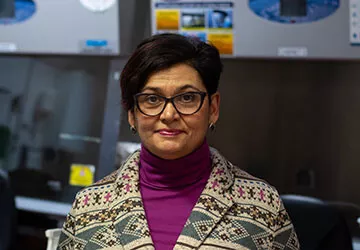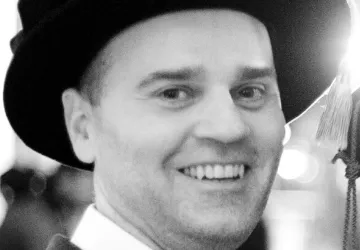
Terms of Admittance to the University of East London
The Terms of Admittance govern your contractual relationship with the University of East London ("UEL"). A contract between you, the Student, and us, UEL, is entered into once you accept an offer of a place on a programme at UEL and this contract is subject to consumer protection legislation. You are entitled to cancel this contract within 14 days of enrolment onto your programme.
1) Student enrolment
Enrolment at UEL is the process whereby you officially become a UEL student. The enrolment process requires you to:
- Ensure that we are holding the correct personal details for you
- Agree to abide by our regulations and policies
- Pay your tuition fees/confirm who is paying your tuition fees
You are expected to enrol by the first day of your academic year (click on "Discover") which will be notified to you in your enrolment instructions. Failure to enrol by the deadline contained in our Fees Policy (for most students by the end of the second week of teaching) may lead to the cancellation of student status and all rights attached to that status, including attendance and use of UEL's facilities.
If you do not complete the formal process of enrolment but, by your actions, are deemed to be undertaking activities compatible with the status of an enrolled student, UEL will formally enrol you and charge the relevant tuition fee. Such activities would include attendance in classes, use of online learning materials, submission of work and frequent use of a student ID card to gain access to university buildings and facilities. Late enrolment charges may be applied if you do not complete your enrolment by the relevant deadline.
2) Tuition fees
Your tuition fee is determined by:
- the programme you are studying;
- if you are studying full or part-time;
- whether you are a UK/EU or International student; and when you started your studies with us.
We will tell you the tuition fee that you are due to pay when we send you an offer as well as confirm any additional costs that will be incurred, such as bench fees or exceptional overseas study trips.
Unregulated tuition fees (where the UK government has not set a maximum fee to be charged) are generally charged annually and may increase each year you are on the programme. Any annual increase will be limited to a maximum of 5% of the previous year's fee. Regulated tuition fees (where the UK government has set a maximum fee to be charged) may also be subject to an annual increase. Any annual increase will be in line with the increase determined by the UK government.
You will be notified of any increases in tuition fees at re-enrolment in the programme.
Further information on tuition fees and payment options is contained in our Fees Policy.
3) Student ID Cards
To produce an ID card, we need a recent photograph of you that is not obscured and is a true likeness. We will either ask you to send us/upload a photograph in advance of enrolment or take one of you at the point of enrolment. The photograph will be held on our student records system for identification purposes by administrative, academic and security/reception staff. By accepting these Terms of Admittance you are confirming that you agree to your photograph being used in this way. If you object to your photograph being used in this way please contact the University Secretary via email at gov&legal@uel.ac.uk.
You are required to provide proof of your identity at initial enrolment and prior to the issue of your UEL student ID card. This is usually a full and valid passport but instead of this you may bring two of the following:
- A (full or provisional) driving licence showing current address
- An international driving licence
- An original birth certificate (in English)
- A debit or credit card (one only)
- A benefit book or benefit award letter (dated within the last 3 months)
- An Armed Forces Identity card
- A police warrant card
You are required to carry and display your student ID card whilst on UEL premises and must keep it safe so that it is not misused by others.
4) Proof of qualifications
You are required to produce evidence of having satisfied the entry requirements for your programme. Such evidence must be in the form of the original certificates or certified notification of results from the examining body. All qualifications must be in English or supported by an official certified translation.
If you fail to provide evidence of having satisfied the requirements for the programme you are liable to be withdrawn from the programme.
5) Non-academic entry requirements
You may need to demonstrate that you have met non-academic entry requirements prior to enrolment by providing additional information to UEL. For example, if you:-
- are under 18 years of age at the time of initial enrolment,
- are applying to a programme that requires health clearance for study as stated in the programme specification,
- have declared a relevant criminal conviction,
- will be studying a programme that involves contact with children and/or vulnerable adults or leads to membership in a professional body that deals with children and/or vulnerable adults.
You will not be permitted to enrol and any offer will be withdrawn if UEL deems that you are unsuitable for study following assessment of this additional information in line with published policies. These policies will be provided to you when the additional information is requested.
6) Criminal convictions
UEL has a responsibility to safeguard staff, students and the wider community. You are required to inform UEL of any relevant criminal convictions you have and provide further information relating to these as requested. This includes any relevant criminal convictions received whilst studying at UEL. UEL will assess all information received in line with published policies and may remove you from a programme if the conviction makes you unsuitable for study in UEL's opinion.
Failure to declare a relevant criminal conviction or provide further information about you may result in expulsion from UEL.
7) Providing false information to UEL
If you are discovered to have falsified or misrepresented information presented to UEL at application, enrolment or during your studies, you may be expelled from UEL.
8) Continued enrolment and student status
You are expected to abide by all UEL policies and regulations, both those in force at the time of first and subsequent enrolment and as later revised and published from time to time. UEL reserves the right to make reasonable changes to its policies and regulations and any substantial amendments will be brought to your attention. You are also required to take personal responsibility for your studies; this includes undertaking all studies in support of your programme as prescribed by UEL.
Key policies include:
Manual of General Regulations
This describes the general regulatory framework of UEL and gives information about how UEL confers its degrees, diplomas and certificates. It includes important information about academic performance requirements for continued study.
Engagement Attendance Policy
This outlines UEL's expectations of students in relation to attendance on and engagement with taught programmes. These students are expected to attend all scheduled classes and engage fully with learning materials and resources provided to them - failure to do so may result in withdrawal from module(s) and/or the programme.
Code of Practice for Postgraduate Research Degrees
The purpose of this code is to provide a framework for the successful organisation and implementation of good practice in all matters relating to postgraduate research degrees at UEL. It aims to ensure that all students are effectively supported and supervised so that the full scope and potential of their research is realised; that their thesis is submitted within regulatory periods and that they complete their programme with a suitable and sufficient portfolio of research and employment-related skills and competencies.
Health and Safety Policy
This describes the structures and processes by which UEL protects the health and safety of its staff, students and visitors. It confirms that students will receive sufficient information, instruction and induction in relation to health and safety. All students should take reasonable care of their health and safety. They must abide by UEL’s rules and regulations and cooperate with supervisors to enable them to fulfil their obligations. Students must not interfere intentionally, or recklessly misuse anything provided for health and safety.
UEL has consulted with its students and staff and has adopted a No Smoking Policy to safeguard the health and well-being of its community. Students are required to comply with this policy which restricts smoking to designated shelters and prohibits the use of electronic cigarettes within any UEL building or near building entrances. For further information on our Healthy Campus initiatives and support please visit the Health and Safety pages.
Student Disciplinary Regulations and Procedures (incorporating the student code of conduct)
This code is more than a list of things that we should and should not do: it reminds us that we should always consider how our behaviour affects others. The code applies:
- to all students;
- at all sites throughout our estate, and;
- when we represent UEL on business beyond our campus, both in real (face-to-face) and virtual environments.
And outlines expectations of students:
- verbal and physical behaviour should always be polite and respectful;
- behaviour should not impair the engagement, learning or participation of others;
- anti-social behaviour by individuals and groups will not be tolerated.
9) Changes to scheduled programmes
UEL will take all reasonable steps to ensure that the programme of study that you have accepted will conform to the programme specification published on our website and will ensure that the necessary resources required to enable you to meet the required learning outcomes and pass the relevant assessments are available.
In order to ensure that our programmes are current and relevant, they are subject to regular review. From time to time, to ensure the maintenance of academic standards and/or compliance with professional body requirements, it may be necessary to amend a module or make adjustments to programme content.
Major changes to programmes that in the reasonable opinion of UEL, will have a significant impact on students will involve consultation with students already enrolled on the programme when the changes are proposed. Once any changes are confirmed, UEL will notify all students and applicants of the changes. When UEL reasonably considers that the change may only impact one or more cohorts on the relevant programme, UEL may decide to only consult with the relevant cohort.
In the event that we discontinue a programme, we will normally permit existing students to complete the programme within the typical duration of study. In these circumstances, UEL will use reasonable endeavours to continue the programme for existing students without making major changes. If this is not possible, we will support students in changing to another UEL programme on which a place is available, and for which the student is suitably qualified, or assist with transfer to another HEI to complete the programme elsewhere.
10) Changes to these terms
We may change these terms from time to time where, in UEL's opinion, it will assist in the proper delivery of any programme of study or in order to:-
(a) Comply with any changes in relevant laws and regulatory requirements;
(b) Implement legal advice, national guidance or good practice;
(c) Provide for new or improved delivery of any programme of study;
(d) Reflect market practice;
(e) In our opinion make them clearer or more favourable to you;
(f) Rectify any error or mistake; or
(g) Incorporate existing arrangements or practices.
No variation or amendment to these Terms of Admittance may be made without our prior written agreement. In the event that we agree to transfer you to an alternative programme of study, the transfer will be considered to be a variation to the Terms of Admittance, which shall otherwise remain in full force and existence.
If we revise the Terms of Admittance, we will publish the amended Terms of Admittance by such means as we consider reasonably appropriate. We will use reasonable endeavours to give you notice of any changes before they take effect.
11) Data Protection
UEL is committed to adhering to its obligations under the Data Protection Act 2018 and will act as a Data Controller when it processes your personal data. You can find our registration to the Data controller register on ico.org.uk.
UEL processes your personal data to fulfil its contractual and legal obligations to students. Personal data that we process about you includes:
- Your contact details and other information submitted during the application and enrolment processes;
- Details of courses, modules, timetables and room bookings, assessment marks and examinations related to your study;
- Financial and personal information collected for the purposes of administering fees and charges, loans, grants, scholarships and hardship funds;
- Photographs, and video recordings for the purpose of recording lectures, student assessments and examinations and for the purposes of university promotion that is in our legitimate interest but still fair to you;
- Information about your engagement with the University such as attendance data and use of electronic services such as Moodle, Civitas and YourTutor;
- Contact details for next of kin to be used in an emergency;
- Details of those with looked-after status or those who have left the care system for the provision of support;
- Information related to the prevention and detection of crime and the safety and security of staff and students, including, but not limited to, CCTV recording and data relating to breaches of University regulations;
This is not an exhaustive list, for further information please refer to our fair processing notice pages on uel.ac.uk. In all of its data processing activities, UEL is committed to ensuring that the personal data it collects stores and uses will be processed in line with the data protection principles which can be summarised as:
- Being processed lawfully, fairly and in a transparent manner;
- Collected for specified, explicit and legitimate purposes;
- Adequate, relevant and limited to what is necessary;
- Accurate and, where necessary, kept up to date;
- Kept in a form which permits identification of data subjects for no longer than is necessary;
- Processed in a manner that ensures appropriate security of the personal information;
- Be accountable for, and be able to demonstrate compliance with, the six principles above.
Student Responsibilities
You must ensure that:
- All personal data provided to UEL is accurate and up-to-date. You must ensure that changes of address etc. are notified to the Student Hub.
- Students who use UEL's computing facilities may process personal data as part of their studies. If the processing of personal data takes place, students must take responsibility for that processing activity to ensure that it is in line with the data protection principles above.
- Students who are undertaking research projects using personal data must ensure that:
- The research subject is informed of the nature of the research and is given a copy of UEL's Fair Processing Notice and this Data Protection Policy.
12) Legal basis for use of data
By agreeing to these Terms of Admittance and enrolling at UEL, you are agreeing to the terms and conditions of a contract for the use of your personal data relating to your enrolment, and if appropriate, registration and ongoing participation in a programme of study. Your personal or special category data will be collected, processed, published and used by UEL, its online learning and teaching services and/or its partners and agents in ways which support the effective management of UEL and your programme of study, to allow for the delivery of bursary schemes and to support improvements to student experience and progression, and are consistent with:
The terms of the Data Protection Act 2018;
Any notification submitted to the Information Commissioner in accordance with this legislation; and compliance with any other relevant legislation.
You have fundamental rights associated with how organisations use your personal data. Further information on data protection and use of your personal data can be found in our Data Protection Policy and on uel.ac.uk.
13) Intellectual property
You are entitled to the intellectual property rights created during your time studying at UEL that would belong to you under the applicable law. There are some programmes where the assignment of certain types of intellectual property to UEL is appropriate. UEL will require the assignment to it of intellectual property rights relating to postgraduate research that is part of an ongoing research programme.
Where the nature of the research programme means that some assignment of intellectual property rights to UEL is appropriate, we will take what steps that we can to ensure that your interests are protected. UEL will take reasonable endeavours to ensure:-
- the scope of the assignment is narrow, and is restricted to what is necessary, for example, to protect UEL’s legitimate interests in the intellectual property created as party to a research programme;
- the application of the assignment is clearly defined so that it is clear to you in which circumstances the assignment will apply;
- where the assignment of the intellectual property is appropriate in the circumstances, we will take all reasonable steps to ensure that the rights of the parties are evenly balanced (for example, your work being acknowledged in a publication and, where appropriate, subject to an appropriate revenue sharing scheme)
- where UEL claims ownership of intellectual property rights in relation to a taught programme of study, such treatment of those rights will be made clear in the published information relating to that programme.
14) How we communicate with you
UEL will communicate with you via a variety of channels, including postal letters, e-mail, SMS text messages and online notices. To enable this, we request that you provide us with your e-mail address, postal address, and contact telephone number when you first enrol.
Throughout your studies, it is important that you keep your contact details up to date. You can view and edit this information by logging into our student portal, UEL Direct at https://uel.ac.uk/Direct.
We will create a UEL e-mail account for you after you enrol. Your e-mail address will be your student number, prefixed with a ‘u’ and followed by ‘@uel.ac.uk’ – e.g.: u1799999@uel.ac.uk. UEL will use this e-mail address to communicate with you and it is important that you regularly check and manage this mailbox for important updates and information.
You can access your email account, plus information about our services, news and events by logging into our Intranet, intranet.uel.ac.uk. At the login screen, enter your email address (as above) and password. Your default UEL password will be your date of birth, formulated as DD-MMM-YY, e.g. 31-jan-84.
Your UEL email account and associated UEL IT accounts will be deleted not more than 6 months after you graduate or withdraw from your programme of study (if earlier).
15) University of East London Students' Union
The University of East London Students' Union (UELSU) represents students at UEL. By enrolling at UEL you are automatically granted membership of both UELSU and the National Union of Students (NUS). If you wish to opt out from this membership, please inform UELSU in writing at either uelsu@uel.ac.uk or by writing to Chief Executive, UELSU, University of East London, Docklands Campus, 4-6 University Way, London E16 2RD.
UELSU provides a range of services and support to students and can provide advice and representation on any matter affecting the contract between you and UEL. For further information on this support, please visit www.uelunion.org
16) Students studying at partner institutions
If you are undertaking a programme of study at a partner institution you will need to generally abide by the above terms and also those of the partner institution. Further information and support in understanding these terms is available from the Academic Partnership Office - apo@uel.ac.uk.
17) International students - additional responsibilities
All international students must also comply with UK Visa and Immigration requirements. All international students are required to hold a valid visa which permits study in the UK or hold a Tier 4 visa/have applied for a Tier 4 visa with a Confirmation of Acceptance for Studies issued by UEL. Students who are being sponsored under a Tier 4 student visa must also understand and comply with the responsibilities of their student visa and cooperate with UEL in fulfilling our Tier 4 duties.
18) Equality, Diversity and Inclusion
UEL is committed to working together to build a learning community founded on equality of opportunity – a learning community which celebrates the rich diversity of our student and staff populations and one in which discriminatory behaviour is challenged and not tolerated within our community.
Within the spirit of respecting difference, our equality and diversity policies promise fair treatment and equality of opportunity for all regardless of gender, ethnicity, sexual orientation, age, disability or religion/belief (or lack of). In pursuing this aim, we want our community to value and to be at ease with its own diversity and to reflect the needs of the wider community within which we operate.
For further information on this inclusive approach to education please visit our Student Policies page.
19) Complaints
We welcome feedback on our programmes and services and facilitate this in a variety of ways, including programme committees, module evaluation forms and surveys.
However, if you are dissatisfied with a particular service or programme or the manner in which it has been delivered, you must let the person responsible for that service know as we will always try to resolve matters at the earliest opportunity via informal conciliation. If you are unsure who to approach, please e-mail The Hub who will be able to direct your concerns appropriately.
If you remain dissatisfied with a service or programme, or the manner in which it is delivered, you should refer to our formal complaints procedure to have the matter formally addressed.
In addition, once you have enrolled on your programme, you will also have access to the Advice and Information Service offered by UELSU. This access is not available to students studying at partner institutions.
20) Cancellation
If you wish to cancel this contract within 14 days of enrolment in your programme, you must do so in writing. Any fees that you have paid will be refunded – please see the Fees Policy for further information on obtaining a refund.
21) Further guidance
If any of the information in these Terms of Admittance or related policies is unclear or if you have any questions, please contact The Hub for guidance on +44 (0) 208 223 4444.
22) Right to advice
This is a consumer contract and you are able to obtain independent advice in relation to its terms and conditions from UELSU as well as your local Citizens Advice Bureau.
23) General
Neither you nor UEL will be liable for failure to perform their obligations under these Terms of Admittance if such failure arises from unforeseeable events, circumstances or causes outside of that party's reasonable control. Examples of such events include, but are not limited to, war, terrorism, industrial disputes, natural disasters, fire and national emergencies.
Only you and UEL are parties to these Terms of Admittance. No other person shall have any rights under the Contracts (Rights of Third Parties) Act 1999 to enforce any term of these Terms of Admittance.
Failure or delay by you or UEL to exercise any right or remedy provided under this contract shall not constitute a waiver of that or any other right or remedy, nor shall it prevent or restrict the further exercise of that or any other right or remedy. No single or partial exercise of such right or remedy shall prevent or restrict the further exercise of that or any other right or remedy.
These Terms of Admittance are governed by the law of England and Wales and you and UEL agree to submit to the exclusive jurisdiction of the courts of England and Wales.


















